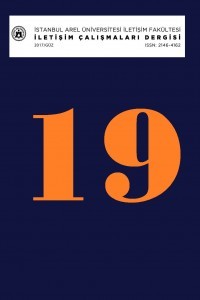
İstanbul Arel Üniversitesi İletişim Çalışmaları Dergisi
Yazarlar: Uğur Özgöker, Nursel SAĞIROĞLU
Konular:Sosyal
Anahtar Kelimeler:Democratization,Political Participation,Media Regulations,Monopolization,Protection of Competition,Turkey-EU Relations
Özet: After the 1990s, the articulation of different economic sectors to media, media ownership went out of the hands of professional journalists and vertical and horizontal mergers have emerged in the sector. The diversification of the economic structures, the economic units operating in various areas have also invested in the media field. These groups have used their media power as an element of pressure over the political powers and bureaucracy in order to support their other economic activities. It has brought along an anticompetitive mechanism. Despite the restrictive regulations on media ownership in Turkey, problems are encountered in practice. EU adopt a media ownership approach that applies the general competition rules rather than the specific regulations for the media sector. The political recommendations by EU and the general competition regulations accepted in the OECD and the WTO targeted at providing pluralism and transparency in the audiovisual media. In the United Kingdom, media ownership restrictions are audited both by the country’s media institution and the competition authority. France has established strict restrictions related to media ownership.The concentration of media ownership and the operation of media companies in the other economic areas prevent the maintenance and protection of competition. The legal arrangements in Turkey and the EU have been examined and the results of the regulations and decisions have been discussed. Media regulations and their enforcement are important not only in the maintenance of competition in the economic sense but also the pluralist parliamentary democracy in the political sense.